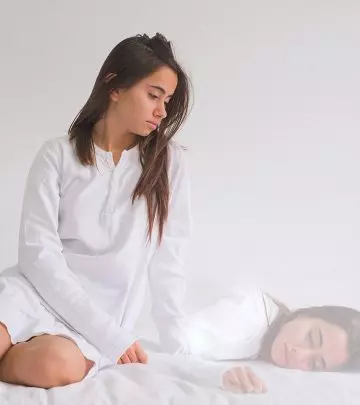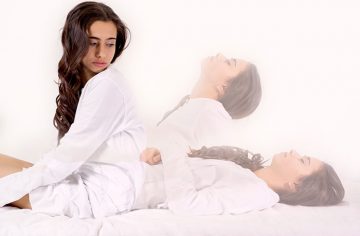Have You Ever Woken Up In The Middle of Night Paralyzed? You’re Not Alone

Image: iStock
You might have woken up in the middle of the night, either soon after you fell asleep (hypnagogic state), or soon before you were about to wake up (hypnopompic state) and experienced numbness in your limbs, freezing you into inactivity, hearing sounds that your sane mind tells you aren’t there, and visualizing scenes your rational mind does not want you to believe.
There are many who are in the same boat, and this is nothing to be worried about. Science describes it as sleep paralysis. It is classified into two types – Isolated Sleep Paralysis (ISP) that occurs probably only as rarely as once in a lifetime and lasts for a shorter duration, and Recurrent Isolated Sleep Paralysis (RISP) that occurs so frequently that a person may experience it a couple of times during a single night, each episode lasting for more than an hour.
The most common justification for sleep paralysis is cited as hallucination. There are age-old myths associating this condition with the presence of aliens, ghosts, or extraterrestrial involvements, though modern science explains it as a purely biological or chemical activity of the brain.
Such conditions of sleep paralysis are also referred to as ‘lucid dreaming’. According to history, traditional saints belonging to Shramanism and Sufism, and ancient Greek and Indian philosophers as well resorted to it to seek enlightenment, and for its powers of attaining remote viewing and knowing something that is beyond our physical measures. The earliest recorded incident of lucid dreaming was in 415 AD – in one of the patients of St. Augustine. Modern science regards this paralysis as a natural part of Rapid Eye Movement (REM) sleep.
Lack of proper and regular sleep, high stress and physical fatigue, and genetic narcolepsy are possible reasons. Anyhow, such experiences are unique for each individual. More researches have to be triggered in the direction of these experiences to establish them as ‘true’.















